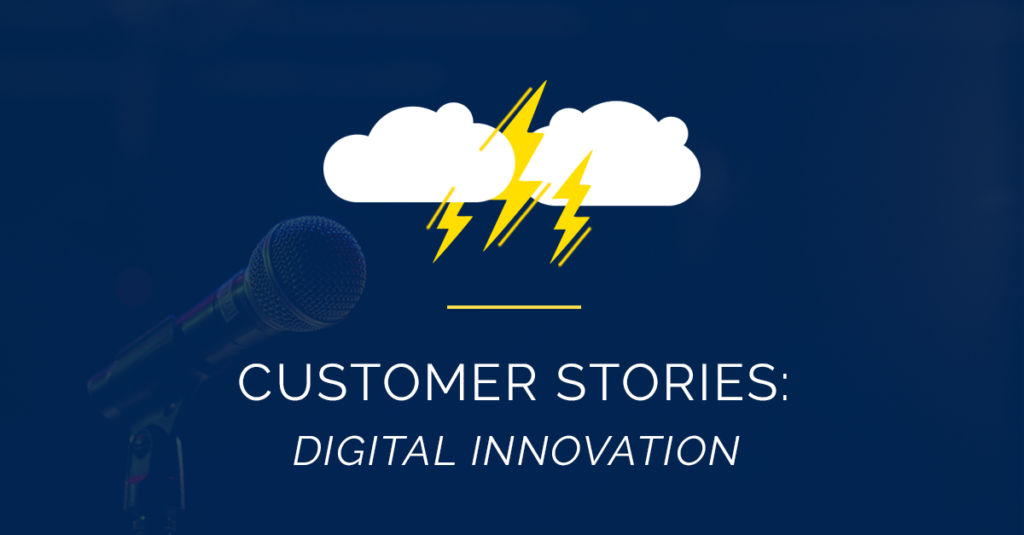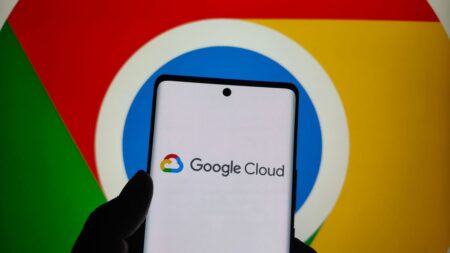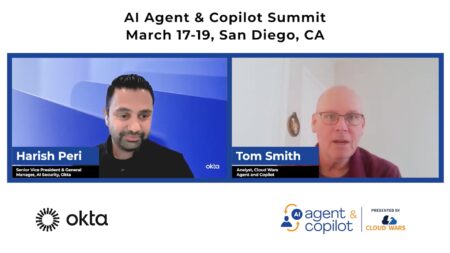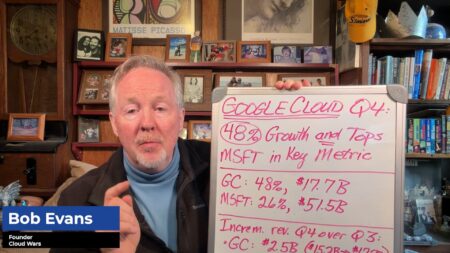Below is a lightly edited transcript of my conversation with Murad Senior Director Rishabh Sinha. Rishabh’s full title is Senior Director, IT Enterprise Applications. For skincare icon Murad LLC, Rishabh focuses on creating consensus-based enterprise solutions that are scalable, adaptable, and synchronized with evolving business needs.
This interview took place in October 2018.
Bob Evans: Our guest today is Rishabh Sinha, Senior Director of Enterprise Apps at Murad Inc, LLC. Murad is a Unilever company that offers high-end skincare products, and has recently been undergoing its own transformation. Part of that transformation has involved moving more and more applications and processes to the cloud. Rishabh, welcome to Cloud Wars Live, and thanks for joining us.
Rishabh Sinha: Hi, Bob.
BE: So, Rishabh, a couple things going on here. First, you’ve got a very well-known and well-established company. You’re in a very consumer-facing business, high-end skincare. And the ability these days, in this consumer-driven world, to get things just right—the way consumers want them—is ratcheting up more and more all the time.
Could you give us a little picture, please, of what things were like for the company before this transition, and then afterward? What lead you to go through some of these changes in your cloud technology?
*******************
You can stream this whole conversation via Cloud Wars Live.
*******************
Murad Senior Director Rishabh Sinha on the need for speed
RS: It’s a great question. Being in a beauty industry and being part of a big Unilever brand, there are a lot of challenges on us to keep on delivering at a faster pace. That requires us to have systems and tools which can perform at a faster pace and a lower cost. So, one of the strategies for us is to try to move into a platform which can help us enable faster response—and try to figure out ways to reduce the cost. Those are the key challenges, and why we wanted to move into a tool which can help us deliver faster response.
BE: Yeah. And beyond the technology you’re using internally, how would that additional speed manifest out in the business world for both your retail partners and your customers?
RS: So, our business model is quite different than other companies. We have a direct-to-consumer business as well as a B2B. And when you’re talking about direct to consumer, we get thousands of transactions per day. In order to take all the transactions, send it to our warehouse to pick, pack, and invoice the customers on the same day, it’s a quite challenging job.
We also have lot of transactions coming through our B2B retail partners, and they’re not small orders. They’re huge orders. And with this migration, we were able to achieve that at a faster response.
BE: Okay. So, Rishabh, there are so many companies now in the cloud business, and every cloud vendor swears, “My stuff’s the best. It’s the cheapest. It’ll take care of everything you need.”
What was the evaluation process like, and how did you end up making your final decision?
Murad Senior Director Rishabh Sinha on Oracle as a cloud vendor
RS: Right. We had been working with Oracle for a very long time, and we had been using Oracle products. It’s more about moving our Oracle environment into the cloud. And one of the reasons why we picked Oracle is the cohesive nature, and the relationship with Oracle and the trust we have built with Oracle over the years. That actually helped us to move this partnership forward.
BE: Rishabh, cloud has become so pervasive these days. And you, your project, your migration was specifically in the infrastructures of service areas. Is that right?
RS: Yes.
BE: Tell us a little bit about that. What was involved here? What’s the new state of your IT environment after this migration?
RS: We wanted to move from a particular location to a cloud environment where things could be managed more easily. And then, we do not have the risk of one particular location. So, for us, that migration was important. Plus, we are taking away the cost of maintaining that server, because the life cycle of a server is three to five years.
So every three to five years, we had to go through that transition of replacing our servers, because those nodes become too old. Now we don’t have to deal with that cost; Oracle, in their cloud infrastructure, they’re managing that for us. At the same time, they’re giving us a better server. So our performance goes faster.
BE: Right. We hear all sorts of stories about migrations like this. Some people say it was perfect and other people describe these huge enterprise IT migrations as more of a nightmare. What was the experience like for you?
Murad Senior Director Rishabh Sinha on moving to the cloud
RS: I think this is where we actually did it a little different. Instead of going to a traditional approach of a migration, we thought differently. We created our standby systems beforehand in the cloud environment. And then it was merely switching the node from the live to a standby. What we have done is we created all these migration up front. So everything was done two or three weeks before.
Then on the day of migration, all the changes which went in the last two, three weeks were migrated. As soon as the migration was done, it was, flip a switch and you can get your environment up and running.
BE: For all the work that went on behind the scenes, to anybody on the outside, it seems like it was a very uneventful event.
Tied to that, I wanted to ask you three related questions. The first one, the benefits to the company. Two, how is your team viewed, having gone through this monumental migration, and delivered all this? And then I’m going to ask you to look forward a little. What’s next? So, if you’d start, tell us – what are the benefits to the company after having completed this?
RS: First and foremost was the cost saving. Second, we were expecting some performance improvement. But we were not expecting the performance improvement would go up by 20, 30%. So, that was great.
And e-business running on an Oracle database, it sometimes becomes a very heavy application. So, with this upgrade, it became much better.
My team, they were running some reports. It was taking 15, 20 minutes before; now it can be finished in less than five minutes. So, that’s kind of a surprise, which was definitely very well perceived by the team. Everybody liked that.
BE: Yeah.
RS: So, I think the next process we are thinking about is the phase of using databases on the servers where all the management is being handled by Oracle. And then in my roadmap, I think the next step after that would be taking all the applications and supporting cloud. So, it’s a journey which we started in this direction. The first step has been successful. Now there are two more steps to go through, and which we are planning in subsequent years.
Senior Director Rishabh Sinha on Murad’s bottom line
BE: Yeah. That’s an ambitious thing. Rishabh, you had mentioned that in some cases, you’re getting a dramatic improvement in speed. You also mentioned the cost. Is there anything you’re able to say, about by what percentage the cost was cut? Any dimension you can offer on that?
RS: Our costs went down by 25%. And that is not the data center alone. It was the bandwidth, the line connection between our office to the data center. We had a dedicated line which we were using in order to maintain that connection.
Now, with the cloud, as long as the network bandwidth is sufficient enough, we are able to have a good connection.
And the third component was the hardware, which definitely we don’t have to buy every three years.
BE: It’s going to be funny, in a few years, you’ll be hiring some young people onto the team, and somebody will say, “Hey Rishabh, I heard you people used to buy hardware. That can’t be true, right?”
RS: Right. Actually we saved some costs by selling the hardware. Like, there’s a big second-hand market for that.
BE: So, your organization’s going to become a revenue generator.
RS: That has been a goal, and that’s definitely brought smiles to my CFO.
BE: That’s great.
You know, in a lot organizations, and not specifying your company, but too often there’s been this separation between the business units and IT. And it sounds like what you and your team have achieved with this migration really brought a closer cohesion. You’re delivering better performance, lower costs, more capability, and especially in that environment that you described where Murad’s got not only the direct to consumer business but also a B2B part of it.
Do you feel that the success of this migration is going to allow you and your team to work even more closely with business units?
Murad Senior Director Rishabh Sinha on changes within his IT department
RS: That has been a focus for us. Yes, we are part of IT, but then we are very close to the business. We want our mission to be in alignment with how the business and how the business teams are functioning. And, yes, this project has definitely helped us. Because instead of focusing on infrastructure or IT-specific areas, we can focus more on the business-specific issues and problems.
That has definitely brought my team and the business teams much more closer. We can focus our time and effort more on establishing the business and helping to come with the IT solutions around information and data. How can we help getting data and information so that we can make right decisions?
BE: Yeah. As you said, with some of this improvement, you don’t have to buy hardware. You don’t have to maintain it. And it sounds like, in a number of cases, some of the manual type of work, sort of low-value work that had to be done in the old model, you don’t need to do that anymore. So, have you been able to re-deploy some people on your team to higher-value types of work?
RS: Yes. We have shifted responsibilities for people who were focusing on infrastructure. Now they’ve become more like network-oriented people. So, they’re helping on that front. And then we were using a lot of consulting help in order to support that hardware. That has been kind of cut down.
But within our team, we have been able to shuffle responsibilities. And they actually feel better, because now what they’re doing is actually much more value-added than just monitoring hardware and making sure that we are properly managing it.
BE: That’s just something that we hear so much about these days, right? It’s a hot job market, definitely one where people have got a lot of opportunities. And when you get, you know, a team like yours where they’re able to say, “I’m contributing more to the company. Learning new skills. Getting ever-more close to the customers and the business,” that that’s got to be a real boost to the morale for your team.
RS: For sure. I think also they see the whole industry is moving in this direction, so they see that they’re learning and gaining new technologies and new skill sets, which definitely helps them even in their motivation level.
Murad Senior Director Rishabh Sinha on broad digital transformation
BE: You know, we hear this term a lot: digital transformation. Is this part of a larger, strategic play at Murad?
RS: Yes. As one of the Unilever brands, there has been a corporate initiative to move in this direction. So, whenever you buy new software, you try to get a SaaS-based platform rather than something which you install on premise.
And, again, we have seen the operational cost on a SaaS-based platform is much lower compared to trying to manage on-premise. We’ve also seen the security things, which have already improved with the level of tools we have.
BE: The security issue was something that I know Oracle has talked about a great deal. For as hard-working and focused as everybody in IT organizations are, there are so many things going on. And when all the patches and updates have to be done manually, a company might be asking for trouble, because of that possibility of human error.
Whereas moving to the cloud, and with a company like Oracle and the focus on service there, it’s not surprising to hear you say that you’ve really gotten a big boost in that area. You’ve gotten more confidence that you’ve got that security issue covered pretty closely.
Murad Senior Director Rishabh Sinha on what comes next
So, Rishabh, before we close up here, is there anything that you wanted to be sure to talk about?
RS: When I talk to different customers, I feel people are moving in this direction, moving into cloud. And I think that’s a good step. That’s where I feel like if people focus more on what Oracle is bringing onto the table, if they can see a big picture, definitely they can bring a lot of saving on the IT costs, and IT organizations can change from a typical IT-support function to helping and enabling a business to grow further.
So, I think my take from the whole process is that the ideas are changing now. If everybody is going in that direction, then IT will definitely have a better path forward.
*******************
RECOMMENDED READING FROM CLOUD WARS:
The World’s Top 5 Cloud-Computing Suppliers: #1 Microsoft, #2 Amazon, #3 Salesforce, #4 SAP, #5 IBM
Amazon Versus Oracle: The Battle for Cloud Database Leadership
As Amazon Battles with Retailers, Microsoft Leads Them into the Cloud
Why Microsoft Is #1 in the Cloud: 10 Key Insights
SAP’s Stunning Transformation: Qualtrics Already “Crown Jewel of Company”
Watch Out, Microsoft and Amazon: Google Cloud CEO Thomas Kurian Plans To Be #1
The Coming Hybrid Wave: Where Do Microsoft, IBM and Amazon Stand? (Part 1 of 2)
Oracle, SAP and Workday Driving Red-Hot Cloud ERP Growth Into 2019
*********************








